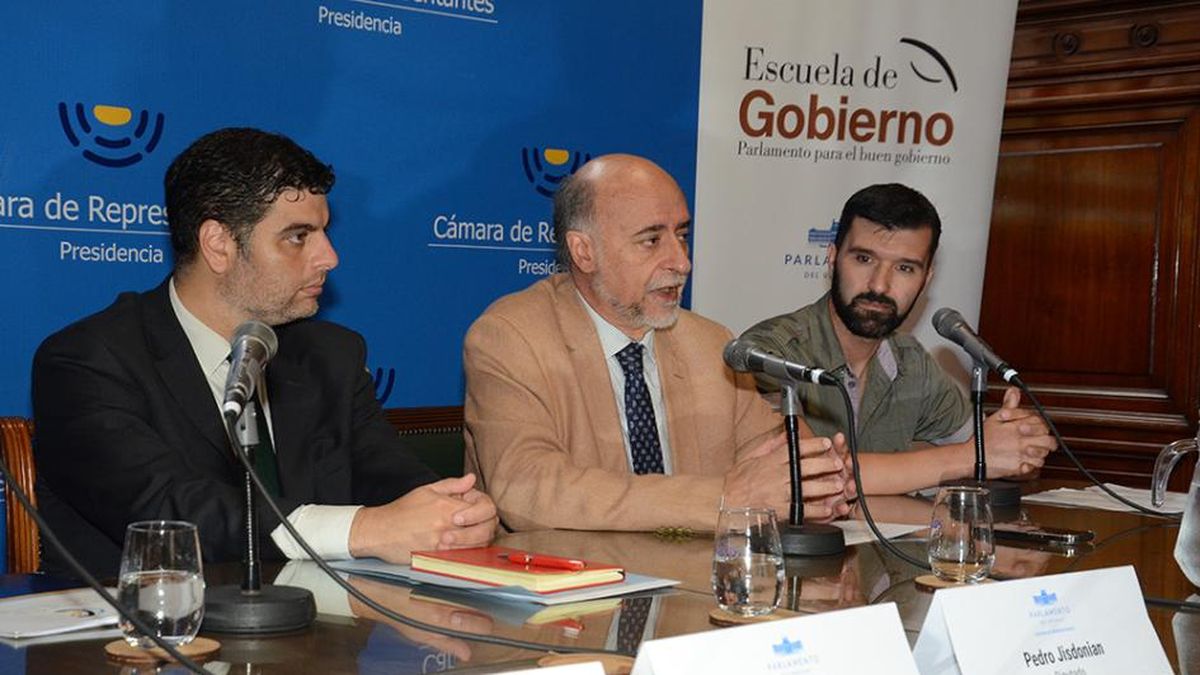He Minister of Labor and Social Security, Pablo Mieres, linked the concept of productivity to an increase of employment and of salary, Therefore, he called for generating multisectoral agreements to generate “a virtuous circle” for the coming years.
“There comes a point at which, if there is no jump in productivity, employment and salary growth begin to become incompatible,” he said. Mieres when valuing a concept that he pointed out as “key”.
The leader expressed himself this way during a new meeting of the Tripartite Superior Council (CST), where members of the Ministry of Labor and Social Security (MTSS) and also social actors, with the aim of forming a working group to deal with the issue.
By going deeper into the problem, Mieres He recalled that “that happened a few years ago in Uruguay when, in the middle of the last decade” and graphed: “We were in a process of growth in employment and wages. There comes a point when, if there is no jump in productivity, these two variables begin to become incompatible and in the end either salary or employment begin to fall behind. At that time it was employment, which began to fall since 2015. “For this reason, he postulated that the objective” is for this trend of employment and salary growth to be consolidated. “
The need to generate multisector agreements
However, the minister clarified that “it is not a thing immediate what we are proposing”, which is why he highlighted the scope that they created with “a tripartite working group and even with the participation of specialists and academics where we can discuss the issue and reach agreements.”
Regarding future goals, he indicated that it is “a virtuous circle” that would allow “to improve the productive capacity of companies, improve people’s working conditions, and on the other hand, allow the country’s economy to grow more vigorously.”
The undersecretary of the portfolio also spoke at the day, Mario Arizti; the national director of Labor, Federico Daverede; the director of the office of the International Labor Organization (ILO) for the Southern Cone of Latin America, Fabio Bertranou; Eloísa González, MTSS advisor; Valeria Cantera and Sebastian Perez members of the technical team of the National Chamber of Commerce and Services of Uruguay (CNCS) and Chamber of Industries of Uruguay (CIU), respectively; Marcelo Abdala, president of PIT-CNT; and Bruno Giometti, economist at the Cuesta Duarte Institute.
Productivity is also key to reducing working hours
Besides, Mieres argued that productivity is also fundamental for the Reduction of the working day. “It is not viable to think about it without a discussion and an improvement in productivity. And improving productivity is a win-win,” he observed and added: “Without improving productivity you are shooting yourself in the foot, you are risking losing jobs, you are risking a drop in profitability. ”.
The statements were given during the seminar Reduction of the working day, organized by the School of Government of the National Parliament, which had the participation of national and foreign legislators, representatives of the employer sector, workers and the Academy.
Over there, Mieres also highlighted three signs of change in the world of work: “The acceleration of work, remote work, which led to there being Parliament a law approved in this period regulating it; work through platforms, which has grown and everything indicates that it will continue to grow; and the impact of the development of Artificial intelligence, with consequences that are very difficult to predict and establish”.
Finally, the Minister of Labor ruled out that technological leaps imply a drop in employment. Instead, he considered that there will be “a strong transformation of work roles and jobs.”
Source: Ambito




